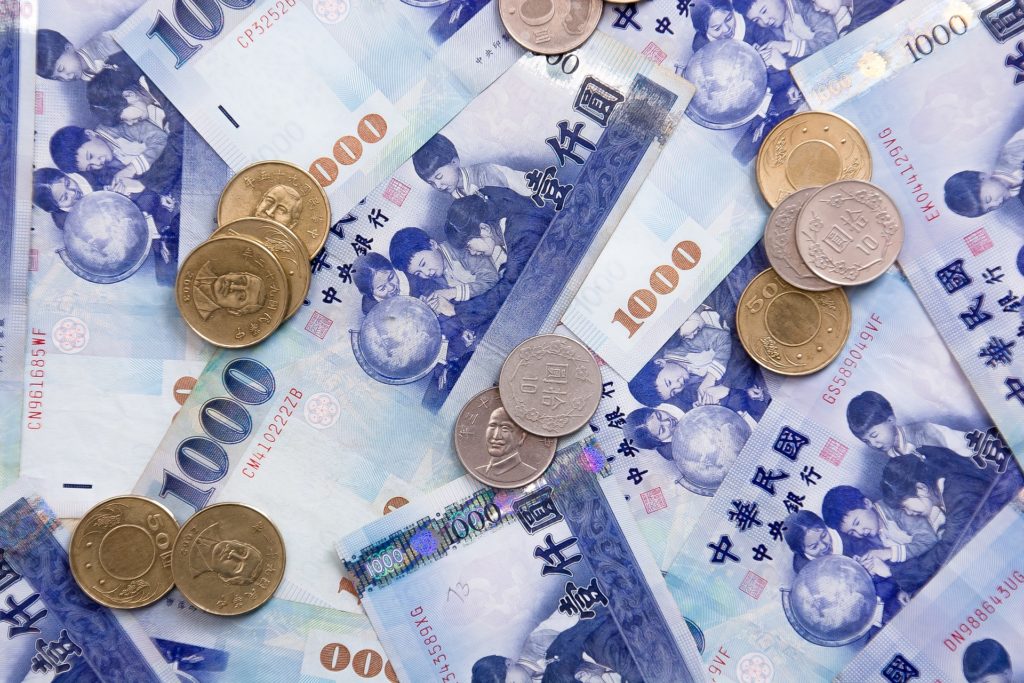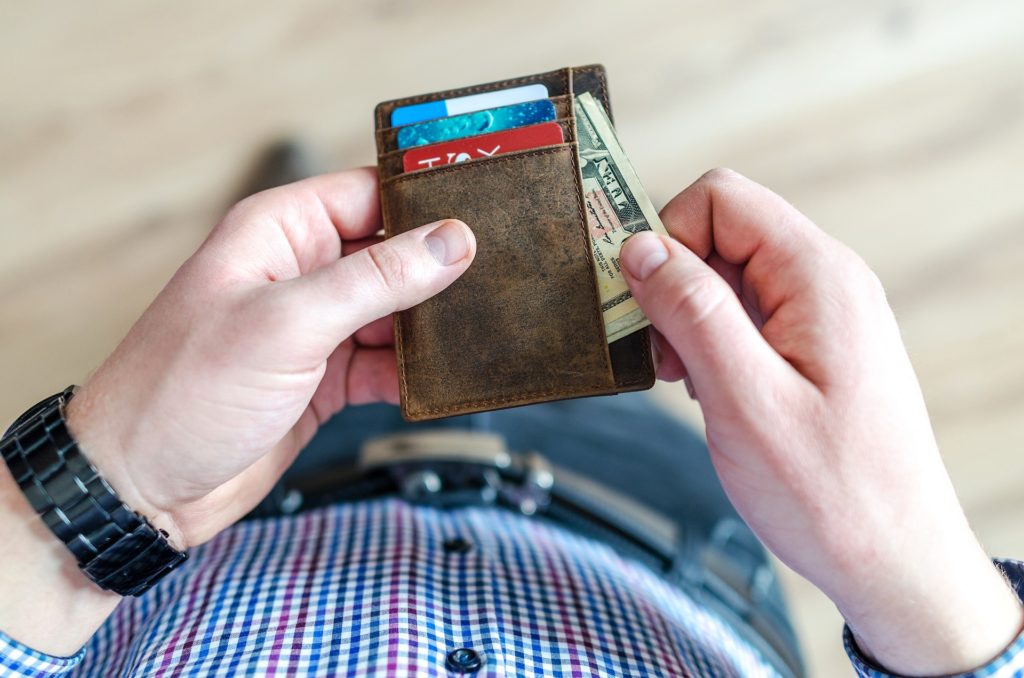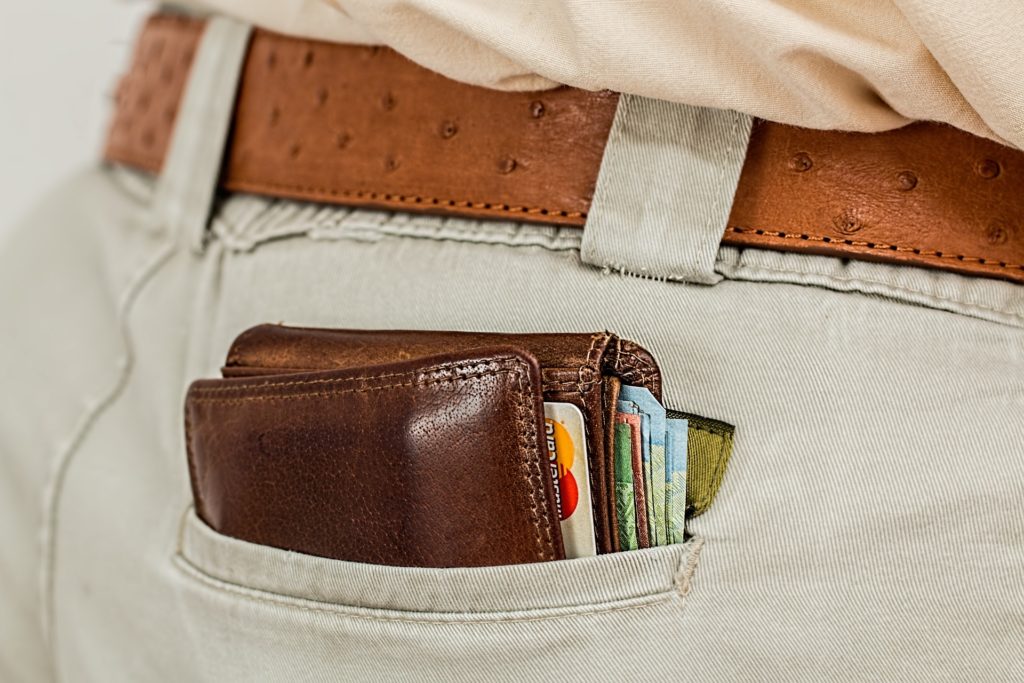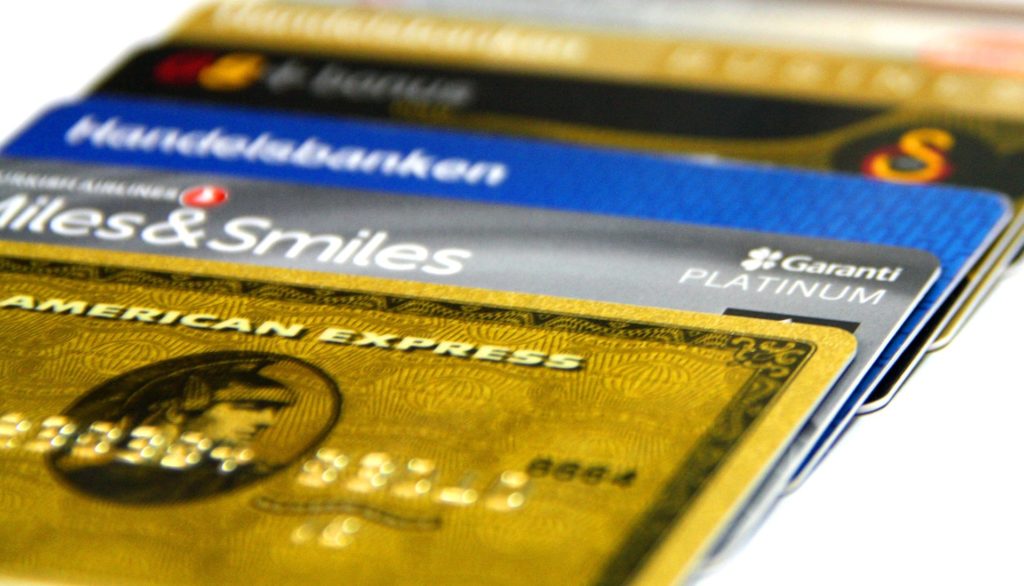This blog post is the third of my Credit Card Travel Benefits Series and continues on from Credit Card Travel Benefits: Frequent Flyer Points.
I never leave home without at least one credit card in my wallet, especially when travelling. In this blog post I will describe how I use cash and credit cards when travelling overseas. I will also look at the pros and cons of each.
After almost a decade of travelling the world with credit cards at my disposal, I have developed a system that works quite well for me. Canada is pretty good for the percentage of merchants that accept credit cards but, since living in New Zealand, I have realised that the percentage is even higher here. Credit cards are so widely accepted in New Zealand that I can easily go nine months without exchanging cash for any of my purchases. However, when travelling overseas this luxury is not the same.
Before I travel to a country overseas I always make sure I have a few hundred dollars of the local currency with me. The exact amount I get will depend on a few factors such as the length of my trip and whether I will be primarily in cities or remote places. When I arrive at my destination I continue to use my same method of spending, where all my purchases are completed using my credit card and my cash is used as a backup.

It is important to note that using cash and credit cards overseas is not the same as using them in your home country. I will discuss the differences when using each method and then will compare them.
Cash
Cash is used around the world in exactly the same manner to purchases items. However, the difference is that foreign cash must first be purchased using your local currency. When you purchase foreign currency it is supplied to you at the prescribed exchange rate of that day. For example, €100 could be purchased for $175.04 NZD from my local bank at the time of writing this blog post.
Also, sellers of foreign cash typically charge a commission or a flat rate fee for their service. My local bank charges $10 NZD to purchase any amount of foreign cash. Independent sellers will have different commission rates or fees and some also advertise that they do not charge fees. I usually shop around at a few places in my city to check the rates before exchanging cash. It is best to have foreign cash before you begin your travels as the rates in airports are among the worst and you do not want to be left at the mercy of the exchange rates you find overseas.
Credit Cards
As with cash, credit cards are used in exactly the same manner around the world. The difference lies in what happens after an overseas transaction is made. After an overseas transaction is completed the amount is sent to the Issuer (e.g. Mastercard) and then their daily exchange rate is used to convert the amount to your local currency. If your card has been issued to you through a Partner (e.g. your bank), they may add a foreign conversion fee to the amount before it appears on your statement. My local bank charges 1.85% of the converted amount as the foreign conversion fee. For example, a €100 transaction at the time of writing this blog post would appear on my statement as $176.09 NZD.
From the above examples, it is easy to see that using cash for a €100 transaction would actually save me $1.05 NZD compared to using my credit card. Let’s look at what the difference is between using cash or a credit card based on the expenses of a whole trip.

It is easy to spend lots of money travelling in Europe for a few weeks. In the following example I will use a total spend for the trip of €1,500. The table below illustrates the differences in rates and fees for cash and credit card and gives the total trip costs in NZD. All of the rates have been taken from my bank for consistency.
| Cash | Credit Card | ||
| Exchange Rate | 0.5713 | Exchange Rate | 0.5784 |
| Conversion Fee | $10.00 (NZD) | Conversion Fee | 1.85% |
| Total Exchanged | €1,500.00 | Total Exchanged | €1,500.00 |
| Converted Value | $2,625.59 (NZD) | Converted Value | $2,593.36 (NZD) |
| Fee | $10.00 (NZD) | Fee | $47.98 (NZD) |
| Total Spend | $2,635.59 (NZD) | Total Spend | $2,641.34 (NZD) |
From the example it can be concluded that cash would still be the better option as it is $5.75 NZD cheaper. However, as I have mentioned in my previous posts, my credit card earns frequent flyer points at a rate of $1 of Airpoints (equal to $1 NZD) per $75 NZD spent. Therefore, on this trip I would have accumulated $34.58 Airpoints, which I could put towards my next holiday. Taking this into consideration, the net amount using a credit card reduces to $2,606.76 NZD and is actually $28.83 NZD cheaper than using cash. This is a direct benefit of using a credit card.
Let’s look at some of the indirect benefits of using credit cards. One benefit is not having to carry €1,500 worth of cash while travelling. In the event that your money is stolen, it is gone for good. However, if your credit card is stolen you simply call the Issuer and notify them that it has been stolen. No further purchases will be charged to you even if the thieves use it before you have a chance to cancel it. Also, they can usually send you an emergency card within a couple days. This gives you piece of mind and a feeling of safety while travelling.

Another indirect benefit I enjoy with using credit cards is a detailed list of my purchases. Have you ever burned through cash on a trip but struggled to remember where you had spent it and how you had spent so much already? At this point it is easy to wonder if you have lost some or if some had been stolen. By using a credit card, you can log into your account on your phone and check every purchase that you have made on your trip.
In order to minimise the risk of carrying large sums of cash on your person while travelling, some people opt to make a few withdrawals during their trip. Withdrawing cash from an ATM is far less favourable than converting it in your home city. Again, using the rates from my bank, an overseas ATM withdraw costs $6 NZD and then a conversion fee of %2.5 is also applied. If we were to alter the cash example by converting €500 before leaving and then made two withdrawals of €500 each, the total spend would increase to $2,679.35 NZD. This is now $72.59 more expensive than using a credit card.
From these examples I can conclude that travelling with a credit card will save you money when compared to using cash. Also, the direct and indirect benefits help to shift the argument in favour of credit cards even more. My years of travelling with credit cards has help me to refine my system of using credit cards as my primary method and cash as a backup method. Everyone’s personal circumstances will be different but I hope these examples have been helpful to you and I encourage you to perform a similar analysis, specific to your circumstances.

Any time you are spending money overseas it is important to understand the additional costs that you may incur. All of the rates and fees can be easily found on your bank’s website. Whether it is your credit card or your bank card, always read the fine print and know the fees.
What method of spending do you use when on holiday? Do you have any good credit card travel stories? Let me know in the comments below.
Make sure to read my next post on Credit Cards vs Travel Cards, which will continue with credit card travel benefits. Want to be notified when new blog posts are uploaded? Subscribe below.
Remember to check out Launch Pad and get started on your list today!

Dave has been on a mission, since 2010, to cross off the 100 items on his bucket list. The stories of his adventures are complimented by life lessons learned along the way and his travel tips are unique to his experiences.

